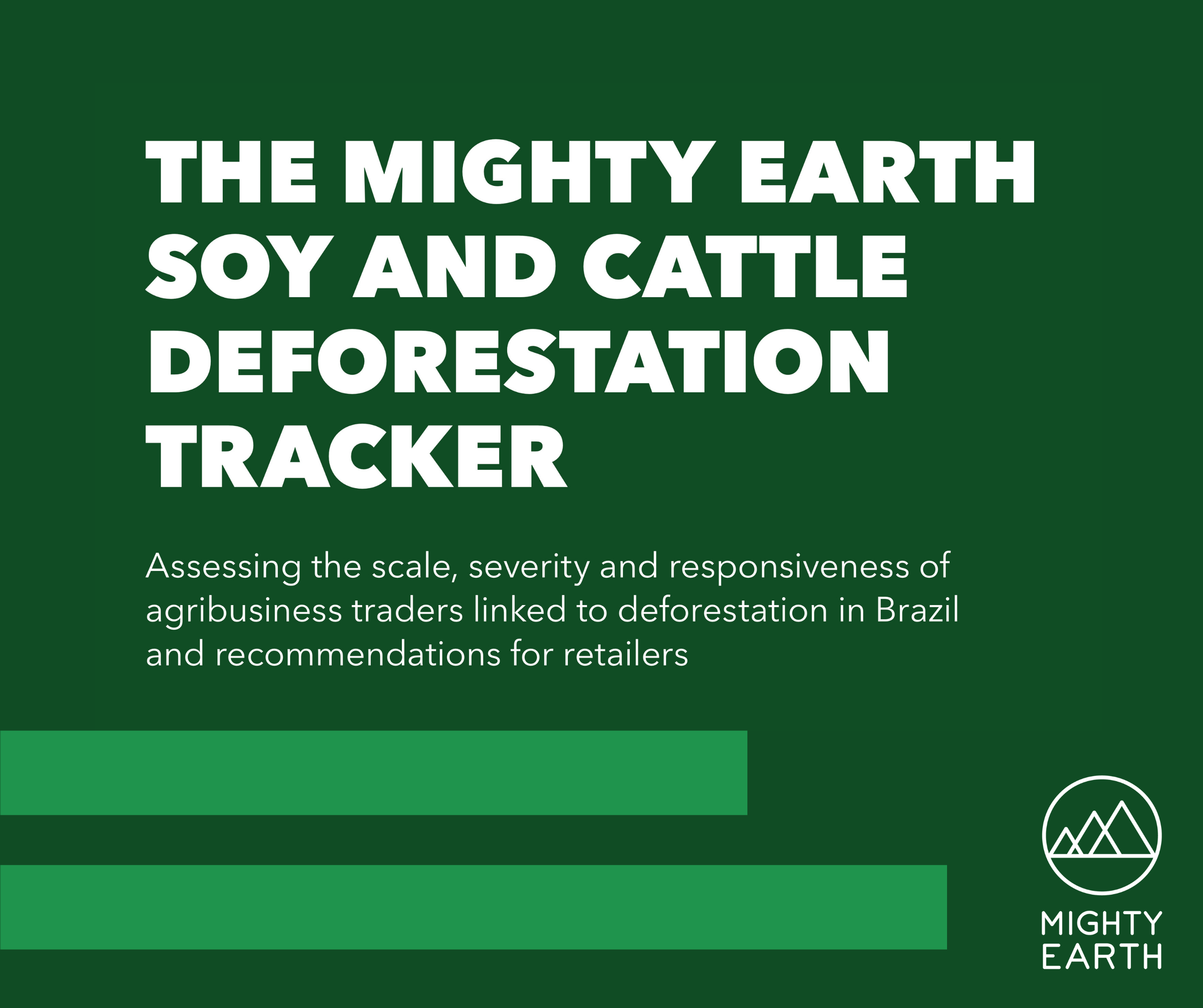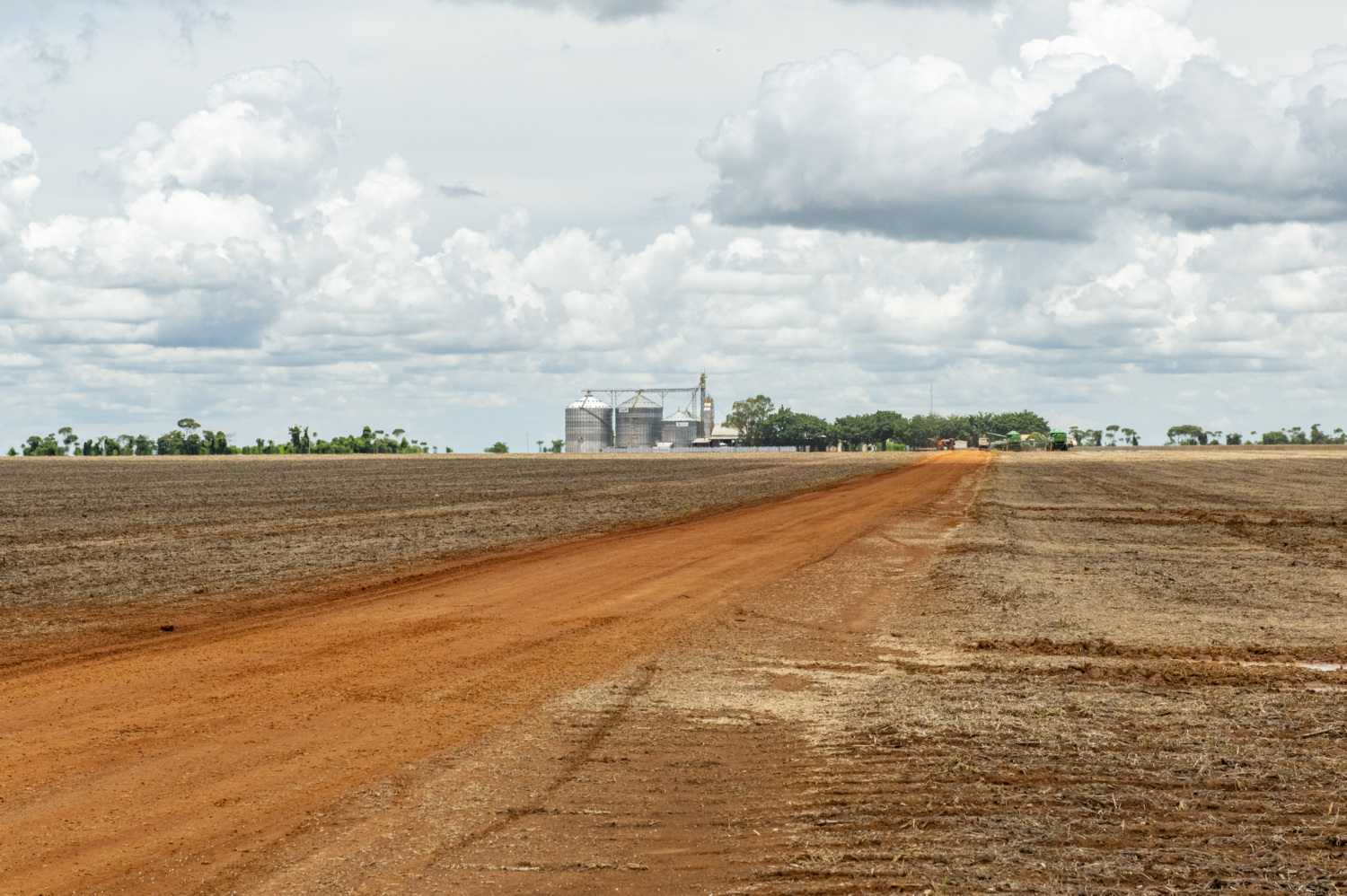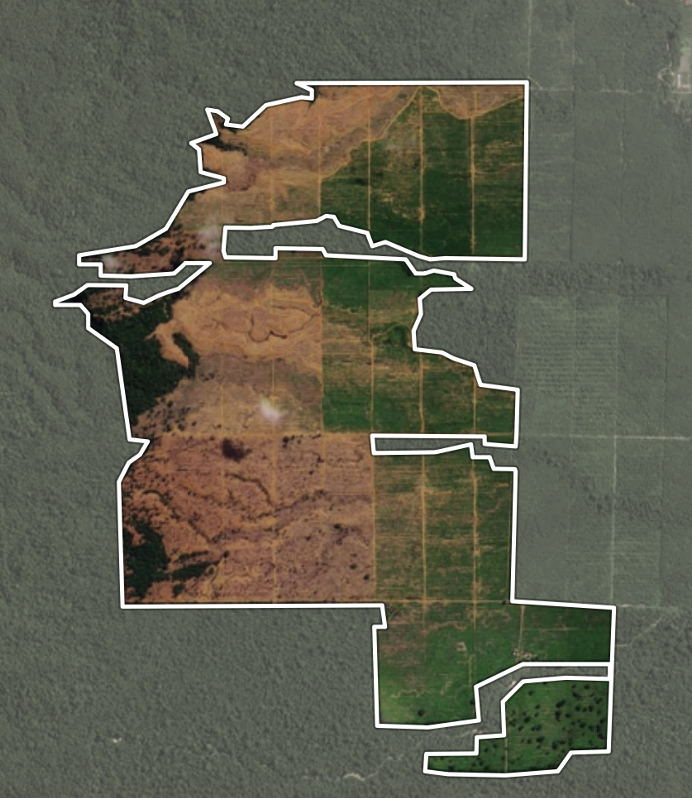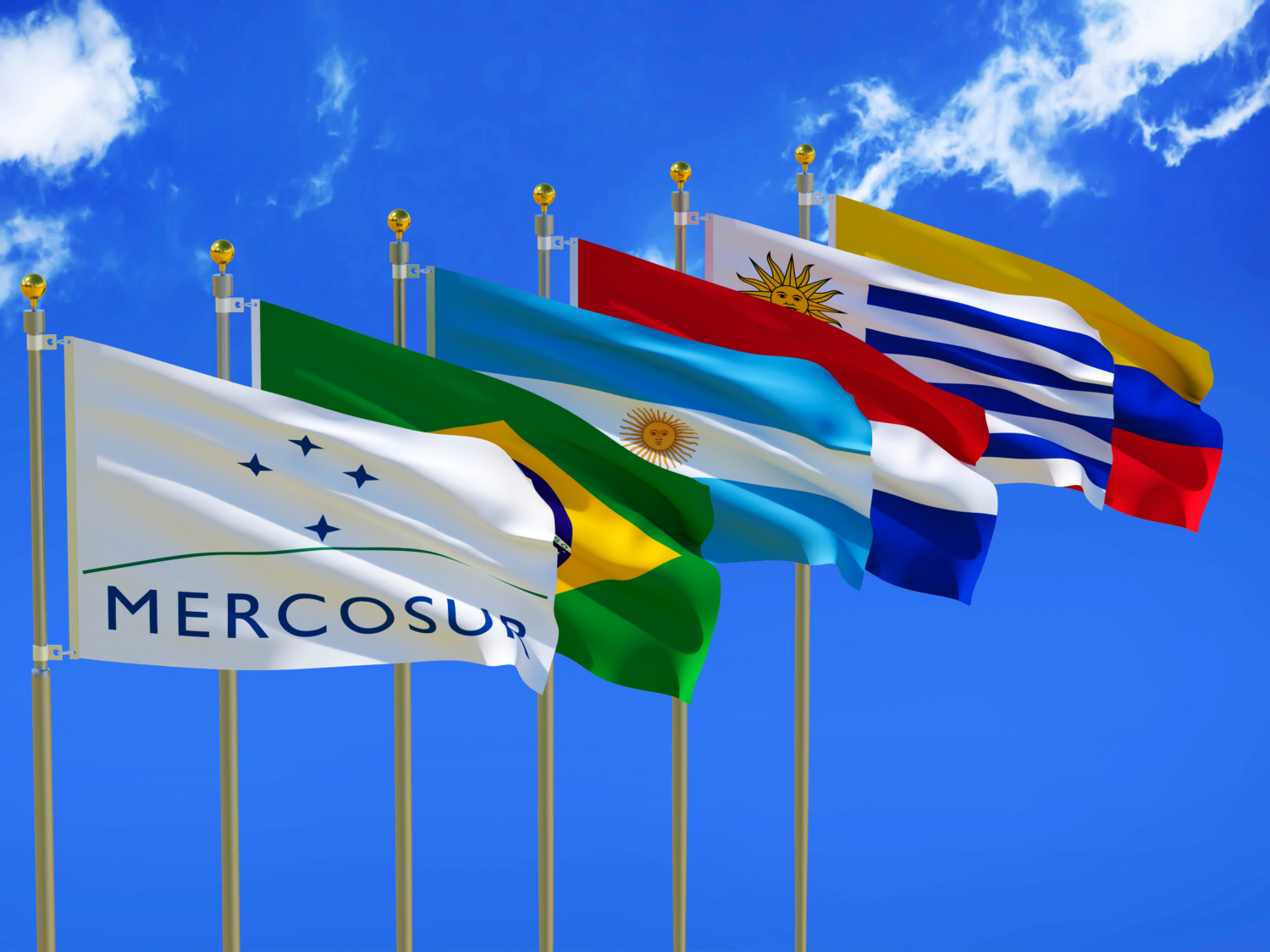
Britain’s major supermarkets linked to deforestation the size of Greater Manchester – in just 18 months

Asked about their connections with Cargill, supermarkets J. Sainsbury, ASDA, Morrisons, and Aldi UK refused to confirm or deny their direct or indirect linkages with the trader. However, Tesco, in a welcome gesture of transparency, acknowledged that Cargill is present in the supply chains of their direct suppliers of chicken and has published a document outlining the origin of the soy used for their products.
Cargill dominates the UK soy market, importing more than two-thirds (70%) of the soybeans that enter the UK directly from Brazil. Three-quarters (78%) of direct exports of Brazilian soy to Britain comes from the threatened regions of Cerrado, the world’s largest tropical savanna, and the Amazon, the world’s largest rainforest.
Almost all (90%) soy consumed in the UK is used to feed British livestock such as chicken and pigs, which are then sold at British supermarkets.
Each month, Mighty Earth and research organization Aidenvironment use satellite-based deforestation alerts from Brazilian government agencies, property imagery, investigations by a local team and engagement with the companies named to establish the links between soy traders, beef processors and forest destruction in Brazil.
Mighty Earth’s Soy & Cattle Deforestation Tracker connects instances of large-scale land clearance in the Amazon and Cerrado to soy traders and meatpackers and makes these links public for the first time. It does not capture all deforestation in Brazil, which is many times larger.
According to Brazil’s space agency (INPE) deforestation of the Amazon rainforest in the country has surged to a 12-year high. Moreover, last week, the Brazilian government removed any measure to tackle deforestation in the national climate action plan (known as NDC) under the Paris Agreement, despite deforestation being the main source of greenhouse gas emissions in the country.
Despite successive declarations from Britain’s leading supermarkets to achieve zero deforestation in their supply chain by 2020, retailers continue to be highly exposed to the deforestation and land clearance in Brazil fueled by soy production.
Robin Willoughby, UK Director of Mighty Earth, said: “British consumers have spoken out loudly and clearly – they don’t want to be complicit in the destruction of Brazil’s precious forests. However, supermarkets are failing to protect them from consuming meat fed on forest-destroying soy. We are urging the CEOs at Tesco PLC, J.Sainsbury’s, ASDA, Morrisons and Aldi UK to take immediate action to stop the destruction of Brazil and drop Cargill.”
To mobilise British consumers around this vital issue, Mighty Earth today launches a petition urging the CEOs of the five largest supermarkets in Britain to take decisive action on Cargill.
The Cerrado, the world’s largest tropical savanna home to the iconic jaguar and over 10,000 plant species, produces about 60 per cent of Brazil’s soyabeans. More than 50% of this ecosystem has been cleared to make way for soy cultivation and cattle ranching.
Soy and cattle are the two largest drivers of forest and other natural ecosystem clearance in the Brazil.


